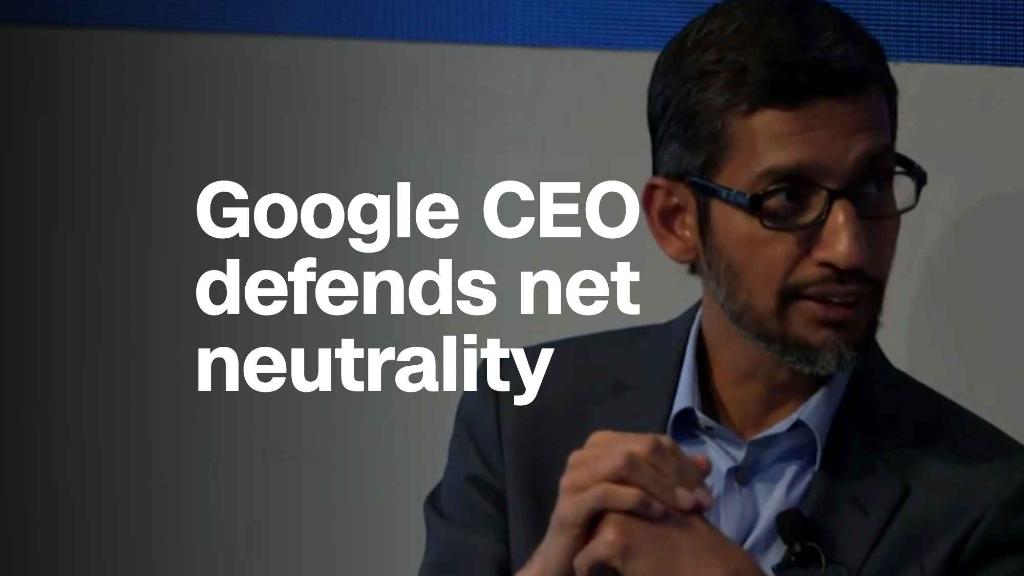
[ad_1]

The internet industry is suing the state of California over its outdated net neutrality law.
The lawsuit, filed Wednesday by major trade groups representing broadband companies, is the second major lawsuit filed against the state over the law — the first was brought by the Justice Department.
On Sunday evening, California Governor Jerry Brown signed what is considered to be the strictest net neutrality law in the country. Under the law, Internet service providers would not be allowed to block or slow down specific types of content or applications, or charge apps or companies for faster access to customers.
Hours later, the federal government filed a lawsuit in which it alleged that California was attempting to “subvert the federal government’s regulatory approach” to the Internet. The DOJ argues that states cannot pass their own laws regulating Internet companies, because broadband services cross state lines. It is fighting the state over a section of a 2017 order repealing Obama-era federal net neutrality protections. In that order, the FCC said it could eliminate state-level net neutrality laws.
Daniel Lyons, an associate professor at Boston College Law School who specializes in telecommunications and Internet regulation, told CNN that the looming legal battle could last for several months, if not longer.
A lot depends on the outcome. The California law is considered the most profound state-level net neutrality law ever passed, and other states are expected to use it as a blueprint for their own laws.
If California wins in court, it would open the door for other states to take similar action. However, the FCC may try to come back with an order to block their efforts again, Lyons said.
Lyons said California would likely claim the pre-emption provision is invalid, while the federal government would try to obtain an injunction to stop the law from taking effect. In doing so, it would be claimed that the law would cause harm if it were allowed to come into effect.
“These efforts to obtain a preliminary injunction appear weak and are likely to fail for the same reasons as Internet service providers [ISP] The industry was unable to circumvent the FCC’s prior net neutrality rules in 2015,” said telecommunications lawyer Pantelis Michalopoulos, a partner at Steptoe & Johnson LLP, who has argued net neutrality cases. “Internet service providers are Speculative theories offered as to why they would do so would cause irreparable damage. These principles do not appear to satisfy the test for preliminary injunction.”
The industry groups participating in the new lawsuit represent major companies including AT&T, Comcast and Verizon, as well as other cable companies and wireless providers across the US. The groups had previously lobbied against the state law. (CNN is owned by AT&T.)
“We oppose California’s action to regulate Internet access because it threatens to negatively impact services for millions of consumers and harm new investment and economic growth. Republican and Democratic administrations have repeatedly expressed this belief. “Such actions are preempted by federal law,” the trade groups USTelecom, CTIA – The Wireless Association, and the American Cable Association said in a statement. “We will continue our work to ensure that Congress adopts bipartisan legislation to create a permanent framework for the open Internet security that consumers expect and deserve.”
In a statement Wednesday afternoon, Attorney General Xavier Becerra indicated the state would fight to defend its new law.
“This lawsuit was brought by power brokers who have a clear financial interest in maintaining their stronghold on the public’s access to online content. California, the nation’s economic engine, has the right to exercise its sovereign powers under the Constitution and we “We will do everything we can to protect the right of our 40 million consumers to access information by defending a free and open Internet,” Becerra said in a statement.
The bill’s co-author, State Senator Scott Wiener, previously told CNN that he expects ISPs to sue over the legislation.
After the trade groups filed their lawsuit, Wiener said, “Internet service providers have every right to sue California, just as California has every right to protect our residents’ access to the open Internet – in fact. I have a responsibility.”
CNNMoney (San Francisco) First Published October 3, 2018: 5:46pm ET
[ad_2]
Source link



![NZ v AUS [W] 2024/25, New Zealand Women vs Australia Women 2nd ODI, Wellington Match Report, December 21, 2024 NZ v AUS [W] 2024/25, New Zealand Women vs Australia Women 2nd ODI, Wellington Match Report, December 21, 2024](https://i3.wp.com/img1.hscicdn.com/image/upload/f_auto/lsci/db/PICTURES/CMS/393400/393416.6.jpg?w=1200&resize=1200,0&ssl=1)




